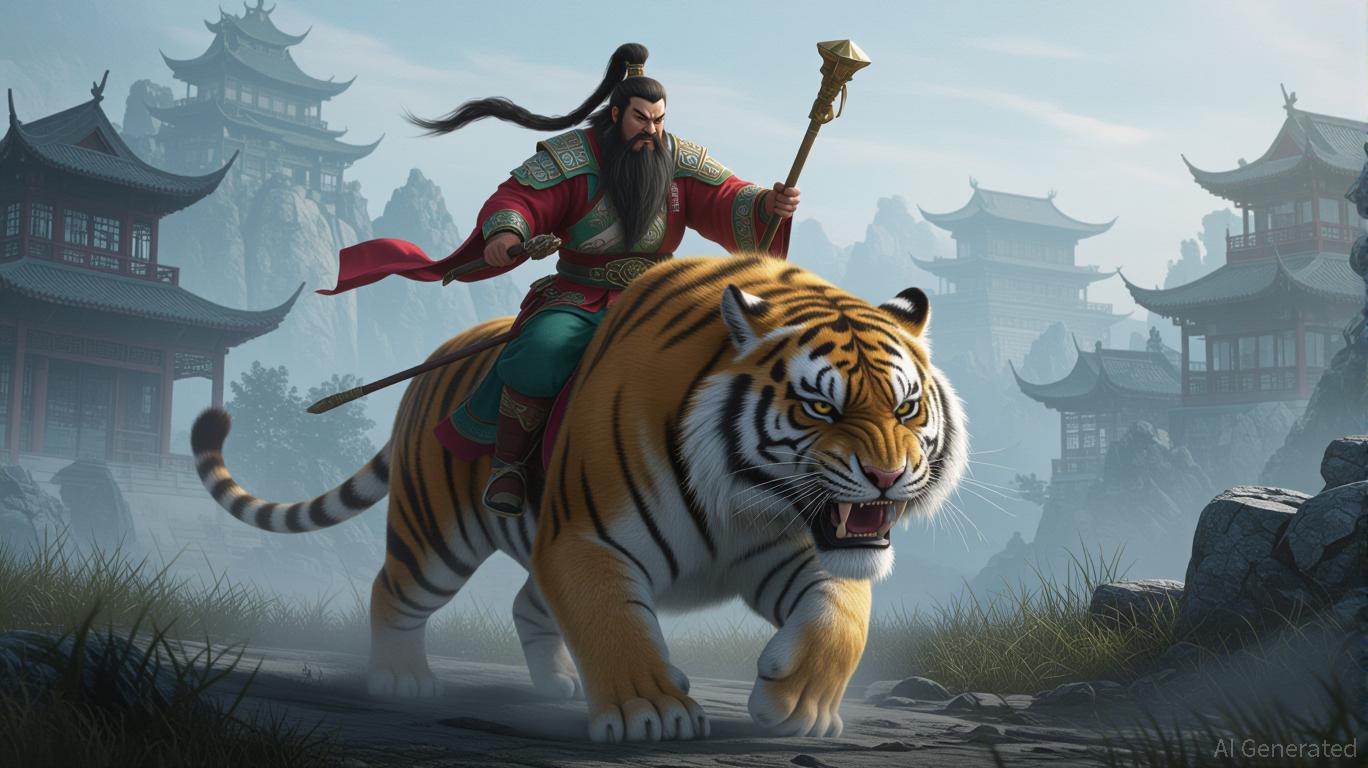
The global gaming industry is witnessing a seismic shift as Chinese indie developers leverage their rich cultural heritage to craft AAA titles that resonate beyond borders. At the forefront of this movement is Black Myth: Zhong Kui, the sequel to the 2024 phenomenon Black Myth: Wukong. This game, developed by Game Science, is not merely a follow-up but a strategic leap into a new era of cultural IP (intellectual property) monetization, where folklore-driven narratives and high-budget production values converge to capture global markets. For investors, this represents a unique opportunity to capitalize on a sector poised for exponential growth.
The Rise of Cultural IP in Chinese Gaming
China’s gaming industry has long been dominated by mobile-first, gacha-driven models, with Tencent and other giants prioritizing monetization over narrative depth. However, the success of Black Myth: Wukong—which sold 20 million copies in its first month and generated $963 million in revenue—has proven that there is a global appetite for culturally rooted, high-quality AAA games. Zhong Kui builds on this foundation, drawing from the legend of Zhong Kui, a ghost-hunting deity in Chinese mythology. By anchoring its narrative in folklore, the game taps into a universal storytelling tradition while offering a distinct cultural lens that differentiates it from Western-dominated AAA franchises.
The monetization strategy for Zhong Kui mirrors Wukong‘s one-time purchase model, with a base price of $59.99 globally and 268 yuan in China. This approach, while diverging from the microtransaction-heavy models of many Chinese games, aligns with the premium AAA standard, ensuring immediate revenue and reducing reliance on post-launch monetization. However, the game’s developers have hinted at potential DLCs and cross-platform expansions, which could extend its lifecycle and revenue streams.
Strategic Positioning for Global Markets
Black Myth: Zhong Kui is being developed for PC and “mainstream console platforms,” with a staggered release strategy similar to Wukong. This approach maximizes regional market penetration and allows for platform-specific marketing. For instance, the game’s PC launch could target Western audiences, while console releases in Asia and Europe capitalize on the franchise’s existing fanbase. The absence of a confirmed release date underscores the project’s ambitious scope, but the anticipation generated by its Gamescom 2025 teaser suggests strong pre-launch momentum.
The game’s cultural authenticity is further amplified by state media support. Chinese state outlets have hailed Wukong as a “cultural visa” to global markets, and Zhong Kui is likely to receive similar backing. This alignment with national soft power goals provides developers with policy incentives, such as tax breaks and export subsidies, which reduce financial risks and enhance profitability. For investors, this means a lower barrier to entry for culturally driven projects that align with government priorities.
Challenges and Opportunities for Indie Developers
While Zhong Kui exemplifies the potential of Chinese indie studios, the broader ecosystem remains challenging. Large studios like Tencent dominate with scalable, data-driven models, often sidelining indie developers who lack resources or creative freedom. However, the success of Wukong has demonstrated that originality and cultural depth can coexist with commercial viability. Indie developers who focus on niche mythologies or underrepresented folklore—such as the Nüwa creation myth or the Shang Dynasty’s ghost stories—could follow a similar path, leveraging AI-driven development tools to reduce costs and accelerate production.
Investment Implications
For investors, the key lies in identifying studios that balance cultural authenticity with global appeal. Game Science’s trajectory—from a small indie team to a AAA powerhouse—offers a blueprint for success. However, the sector’s volatility requires careful due diligence. Startups with strong IP portfolios and partnerships with hardware manufacturers (e.g., Nvidia’s collaboration with Wukong-themed gaming hotels) are particularly promising. Additionally, companies that provide AI tools for game localization and cultural adaptation could benefit from the rising demand for cross-border IP.
Conclusion: A New Era of Cultural Capital
Black Myth: Zhong Kui is more than a game—it is a harbinger of a new era where Chinese indie developers redefine global gaming through cultural IP. By blending folklore with AAA production values, these studios are not only monetizing heritage but also reshaping the industry’s narrative. For investors, the opportunity lies in supporting this cultural renaissance while navigating the challenges of a competitive, policy-sensitive market. As the world increasingly embraces diverse storytelling, the fusion of tradition and technology in games like Zhong Kui will likely become a cornerstone of the next gaming decade.
